How to reduce stress
& stay positive?
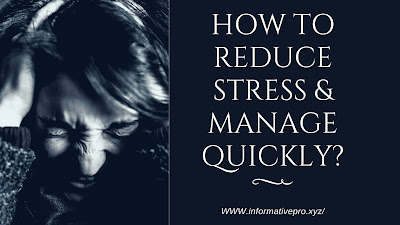
WHAT IS STRESS?
Stress is a feeling of not able to cope up with your
situations. In simple words, it is how the brain and body respond to any
demand. Stress is a response to the physically, mentally, or emotionally
occurring changes.
Stress is a normal part of life. Your body reacts to any
change that requires adjustment or response.

You can experience stress from your environment, your body,
and your thoughts. Even positive life changes such as a promotion, a mortgage,
or the birth of a child produce stress.
Stress can be a motivator, and it can even be essential to
survival. The body’s fight-or-flight mechanism tells a person when and how to
respond to danger.
WHAT ARE THE CAUSES OF STRESS?
The situations and pressures that cause stress are known as
stressors. Not all stress is caused by external factors. Stress can also be
internal or self-generated, when you worry excessively about something that may
or may not happen, or have irrational, pessimistic thoughts about life.

The stress of your depends on, your perception of it.
Sometimes, the situation is stressful for you but not for others and they may
enjoy it. For e.g. some of you may be terrified of getting up in front of
people to perform or speak but others may love to be in the spotlight.
There is no perfect reason why you may feel less stressed
than another when facing the same stressor. Mental health conditions, such as
depression, or a building sense of frustration, injustice, and anxiety can make
some of you feel stressed more easily than others.
WHAT ARE THE SYMPTOMS AND SIGNS OF STRESS?
There are four primary types of symptoms of stress:
physical, emotional, cognitive, and behavioral.
The following are the types of symptoms that may be present
in someone suffering from stress:
Physical Symptoms:

Physical Symptoms of stress includes:
Getting sick more often than normal
Chest pain
Headaches
Nausea
Muscle aches
Trouble sleeping
Heartburn or indigestion
Fatigue
Unusual Changes in weight
Irregular or missed periods
Emotional Symptoms:

Emotional Symptoms of stress are:
Restlessness
Irritability
Less than normal patience
Feelings of sadness and/or depression
Feelings of being overwhelmed
Sense of isolation
Trouble coping with life’s issues
More frequent or extreme pessimistic attitude
Cognitive Symptoms:
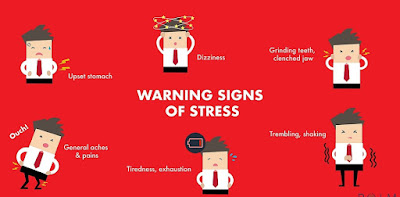
The list of Cognitive symptoms is as follows:
Chronic worrying
Impaired concentration
The trouble with remembering things
Anxious thoughts
Reduced judgment
Impaired speech
Repetitive thoughts
Behavioral Symptoms:
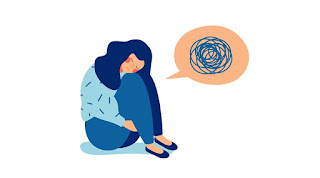
These include:
Biting nails
Pacing
Behavioral Symptoms:
Change in eating habits
Change in sleeping habits
New or increased use of drugs
Frequent lying
HOW TO REDUCE STRESS & MANAGE?
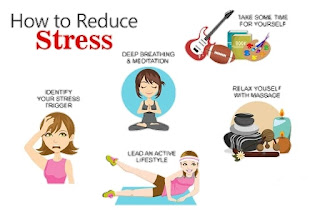
You can manage your stress and lead a happy and healthy
life. Here are the tips by which you may begin with:
1. Be Positive
2. Make time for hobbies and interests
3. Be assertive instead of aggressive.
4. Start meditation, yoga
5. Exercise regularly.
6. Eat healthy, well-balanced meals.
7. Manage time more effectively.
8. Set limits appropriately
9. Create hobbies and interests.
10. Get enough rest and sleep.
11. Don’t rely on alcohol, drugs.
12. Seek out social support.
13. Seek treatment with a psychologist
14. Set goals and priorities.
15. Be observant.
HOW TO GROW YOUR SOCIAL NETWORK?
Cast a wide net:
Look to different relationships for
different kinds of support. But remember to look to people you can trust and
count on, to avoid disappointing, negative interactions that can make you feel
worse.
Be proactive:
Make time for friends and family. Reach out to
lend a hand or just say hello. If you’re there for others, they’ll be more
likely to be there for you.
Take advantage of technology:
Technology makes it easier
than ever before to stay connected with loved ones far away. You can sit down
with a friend face-to-face and share your problems.
Follow your interests:
Do whatever you wish to do based on
your interests such as hiking, singing, playing tennis, writing, etc. Try to
enjoy the experience as you get to know others over time.
Seek out peer support:
If you’re dealing with a specific stressful situation such as caring for
a family member or dealing with a chronic illness — you
may not find the support you need from your current network. Consider joining a
support group to meet others who are dealing with similar challenges.
Improve your social skills:
If you feel awkward in social
situations and just don’t know what to say, try asking simple questions about
the other person to get the ball rolling. If you’re shy, it can be less
intimidating to get to know others over shared activities — such as a bike ride
or a knitting class — rather than just hanging out and talking.
Ask for help:
If you lack a strong support network and
aren’t sure where to start, there are resources you can turn to. Places of
worship, senior and community centers, local libraries, refugee and immigrant
groups, neighborhood health clinics, etc. you can consider visiting.
WHAT ARE THE FIVE THINGS YOU SHOULD KNOW ABOUT YOUR STRESS?
Stress affects everyone:

We all experience stress from time
to time. Some of you may cope with stress more effectively and recover from
stressful events more quickly while some of you do not.
All Stress is not bad:
We consider stress to be bad, but
it’s not always true. Stress is not always as dangerous as we think. It can be
motivating for us. In non-life-threatening situations, stress can motivate
people, such as when they need to take a test or interview for a new job.
Long-term stress can harm your health:
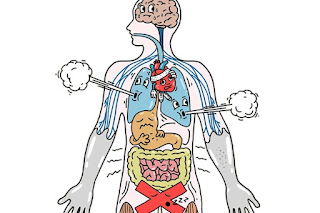
If you are suffering
from chronic stress, then it could be challenging for you and your health.
Chronic stress can disturb your immune, digestive, cardiovascular, sleep, and
reproductive systems. Some may also experience headaches, sleeplessness,
sadness, anger, or irritability.
Continuous strain on your body from stress may contribute to
serious health problems, such as heart disease, high blood pressure, diabetes,
and other illnesses, including mental disorders such as depression or anxiety.
There are ways to manage stress: You can work on the
following ways to cope up with your stress:
1. Be observant
2. Get regular exercise
3. Talk to your health care provider or a health professional
4. Try a relaxing activity
5. Set goals and priorities.
6. Stay connected
7. Consider a clinical trial
Ask for help from a health professional if you are
overwhelmed:
You should consult the health professional if you are overwhelmed,
feel you cannot cope, using drugs or alcohol more frequently or you have
suicidal thoughts as a result of stress. Do not hesitate or feel shame for
consulting doctors for the reason of stress.
WHAT YOGA IS BEST FOR YOUR STRESS?

The following are the best yoga’s to perform to relieve
stress:
Satyananda:
It is a traditional form of yoga that is
beginner-friendly. It includes gentle poses, deep relaxation, and meditation.
This type of yoga is good for those aiming to relieve or to reduce stress.
Hatha yoga:
It is a gentle way to relieve stress and is
suitable for beginners.
Power yoga:
It suitable for those who are looking for
stimulation as well as relaxation as it involves intense poses and focuses on
fitness.
SOME STRESS BUSTING TIPS
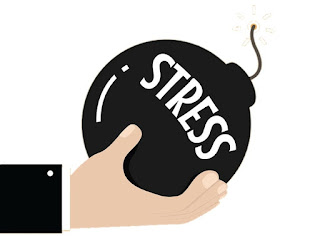
Get all information you can:
Knowledge is power, and it can
help you cope. The more you know about your condition and treatments, the more
in-control you will feel.
Enlist Help:
When you are faced with a debilitating medical
condition, you cannot handle it alone. Recognize that you need help, and don’t
hesitate to reach out for it.
Have a good cry:
You deserve the time to grieve the
situation you are in. Allow yourself to cry, scream, rant, and otherwise take
out the stress before it makes you even sicker.
Make Plans:
Start planning the rest of your life
accordingly. If you are facing a terminal illness, make plans for the time you
have left.
Find a Spiritual Advisor:
Even if you are not a religious or
spiritual person, finding someone who can talk to you about “what comes after”
might be a helpful step to put your illness in perspective.
HOW TO REDUCE STRESS BY AVOIDING THESE THINGS?

You can avoid stress by simply following the below
instructions:
1. Know your Limitations
2. Have a Good Support System
3. Understand Your Triggers
4. Learn Relaxation Techniques
5. Manage your time.
6. Learn to say no
7. Exercise
8. Be More Assertive
(FAQ)
Q1. WHAT ARE THE FOODS THAT REDUCE STRESS LEVEL?
Ans: you can eat these foods:
1. yogurt
3. turmeric
4. eggs
5. fish
Q2. WHAT ARE THE FOODS THAT CAUSE DEPRESSION?
Ans: Junk foods are cause depression because of heavy in calories and it reduces your immunity power and brainpower too.
Q3. HOW TO REDUCE STRESS QUICKLY?
Ans: There are several steps or tips to reduce stress quickly
1.Do Meditation.
2.write something or draw whatever you want to draw.
3.litsen joyful songs.
4.read positive power books.
5. see some comedy videos.

Leave a Reply